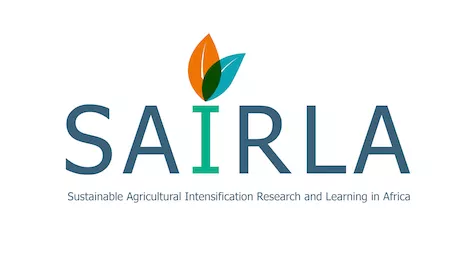AFRINT IV
AFRINT IV - Policy for Equity in African Agriculture - is a follow up study in a sub-sample of Afrint villages in Malawi, Tanzania and Zambia. The project is headed by Professor Agnes Andersson Djurfeldt.
Afrint IV is part of SAIRLA – Sustainable Agricultural Intensification Research and Learning in Africa - a research programme funded by the UK Department of International Development, through Wyg and the Natural Resources Institute at the University of Greenwich. The project brings together collaborators from the Department of Human Geography at Lund University, the University of Malawi, Sokoine University of Agriculture, the University of Zambia, the Lund University Centre of Sustainabilty Science (LUCSUS) and the Overseas Development Institute (ODI).
The aim of the project is to analyze patterns of smallholder intensification in Zambia, Tanzania and Malawi from a sustainability perspective with a particular attention to gender and youth and the ways existing rural institutions could be enabled and incentivized to improve equity given prevailing policies, norms and structures.
The project addresses four main research questions
- To what extent has intensification of smallholder agriculture in Zambia, Malawi and Tanzania 2002-2013 led to soil degradation and poor land management?
- To what extent and how is the relationship between intensification and soil degradation/land management mediated by gender and age?
- To what extent and how has intensification reconfigured intra-household relations in terms of gender and age?
- What is the role of local institutions in creating sustainable intensification? How can these roles be improved to increase equity?
The project will provide empirical evidence to improve Sustainable Intensification approaches and policies to ensure the needs and interests of poorer smallholders, especially youth and women. The research contextualises findings at the district level as well as within national agricultural policies, processes of institutional change, the changing landscape of risk and broader demographic and socio-economic shifts.
Research reports
A Political Economy of Inclusion in Agricultural Intensification - Malawi Country Report
A Political Economy of Inclusion in Agricultural Intensification - Tanzania Country Report
A Political Economy of Inclusion in Agricultural Intensification - Zambia Country Report
A Political Economy of Inclusion in Agricultural Intensification - Synthesis Report
Research briefs and summaries
Agricultural Intensification and Gender in Malawi, Tanzania and Zambia
How do the gendered patterns of agricultural intensification differ between countries, and what are the common lessons to be drawn?
What drives agricultural transformation in Malawi? Lessons from a political economy analysis
What drives agricultural transformation in Tanzania? Lessons from a political economy analysis
What drives agricultural transformation in Zambia? Lessons from a political economy analysis
Data from a total of 400 households in Iringa and Morogoro districts during two waves of panel data (2002, 2008 and 2015) illustrates a rapidly changing rural landscape: average maize yields and sales have increased significantly in both districts; the use of tractors has increased considerably; the average area under paddy has increased slightly whilst paddy production almost doubled between 2002 and 2015.
Policy frameworks in Zambia mainly refer to gender in terms of mainstreaming, ensuring an equitable number of beneficiaries within programmes and the importance of targeting women. However, none offer clear guidelines on how these aims are to be operationalized.
This background note is intended to provide an initial review of the policy framework regulating gender and generational equity in sustainable agricultural intensification in Malawi, Tanzania and Zambia.
Researcher teams
Afrint IV, like its three predecessors, is an African-Swedish research project, building on close to two decades of co-operation between Lund University and a number of research institutes in Malawi, Tanzania and Zambia.
Swedish team
- Professor Agnes Andersson Djurfeldt (team leader), Department of Human Geography, Lund University
- Associate Professor Ola Hall, Department of Human Geography, Lund University
- Dr Karin Lindsjö, Department of Human Geography, Lund University
- Dr Genesis Tambang Yengoh, Lund University Centre of Sustainability Science, Lund University
Malawian team
- Professor Wapulumuka O. Mulwafu. Chancellor College, University of Malawi
- Mrs Miriam Joshua, Chancellor College, University of Malawi
Tanzanian team
- Professor Aida Isinika, Institute of Continuing Education, Sokoine University of Agriculture, Morogoro
- Dr Elibariki Msuya, Faculty of Agriculture, Sokoine University of Agriculture, Morogoro
Zambian team
- Mr. Mukata Wamulume, Institute of Economic and Social Research, University of Zambia
- Mrs Audrey Kalindi Department of Population Studies, University of Zambia
Political economy team
- Associate Professor Anna Mdee, Overseas Development Institute/University of Leeds
Policy impact team
- Simon Hearn, Overseas Development Institute


